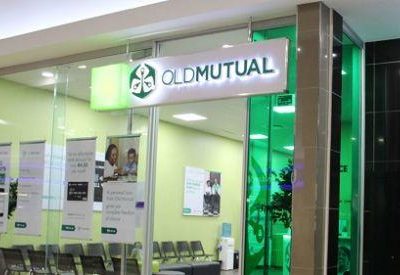
Goolam Ballim, Chief Economist, Standard Bank Group
It is an unfortunate yet inescapable reality that Covid-19 will be a key determinant in Africa’s economic growth in the short term. Despite not suffering the same levels of human casualty as elsewhere (less than 5% of the overall deaths from Covid-19 have been in Africa), a largely sluggish vaccine rollout is preventing the continent from kickstarting its recovery as quickly as it might.
The patchy vaccine rollout, destined to be a multi-year process, will have varying implications for the growth of certain countries across the continent. Africa has often been characterised by the heterogenous nature of its economies, and these variants are likely to be more pronounced and significant than usual over the next twelve months. The IMF’s recent assessment[1] that Sub-Saharan Africa will be the slowest growing region in 2021, highlights the challenges that parts of the continent are facing.
That said, Africa’s GDP is expected to grow by 3.4% in 2021[2], which as Standard Bank’s recent Africa Markets Revealed report concluded, the combination of vaccine distribution and unwinding base effects of central governments will be the spur of the recovery and help stave off an outright recession. Now is an opportune time to stress to investors that the continent’s rapid development in the 21st century has created some robust, resilient regions where opportunities remain aplenty for investors in both the short and long term.
To break down Africa’s growth over the next twelve months, it is possible to place its economies into four broad groups.
- Firstly, it is worth considering the countries that will most keenly feel the effects of Covid-19. With it possible that overseas travel not set to return to pre-pandemic levels until 2025[3] at the earliest, Africa’s tourism dependent economies, the likes of Egypt and South Africa, will have another year of underperformance and are unlikely to see a return to positive growth until 2022.
- Africa’s oil-dependent economies are also set to struggle. Angola and Nigeria have been blighted by oil prices nosediving since the onset of the pandemic and despite their recent uptick this will be insufficient for full-scale fiscal rehabilitation. The net result is likely to be low single digit growth, but in reality this will feel more like a recession.
- Things are more optimistic for those African economies that rely on a more diverse pool of natural resources. Countries like Zambia and DR Congo, who can call on their extensive copper and cobalt resources, are enjoying a lifeline from elevated levels of commodity prices and will see greater green shoots of recovery.
- Finally, the continent’s most resilient and successful economies during this period will be the most diverse economies with a low level of resource dependency, such as Ethiopia and Kenya. These economies are also better integrated and stand to gain from increasing export volumes in commodities that will balance itself against services exports, which are still set to lag. At present, this balance and integration provides a stability that should prove more attractive to institutional investors looking to invest in the region with confidence.
These varying fortunes across the continent illustrate the need for more clinical assessments of opportunities on the continent. Investors have been badly bruised by the unforgiving investment conditions forced by the pandemic and it is important that a more prudent approach is adopted to ensure more efficient returns. However, investors must also be sure to disentangle these more uncertain short-term prospects for Africa, from the long-term structural profile of the continent and the opportunities it continues to possess.
Standard Bank Group has previously identified five major structural drivers of African growth and despite Covid-19 these remain very much intact. The continent’s vast youthful population, the rapidly increasing levels of urbanisation, the continued abundance of resources, as well as the rapid deepening of its financial services and the technological infrastructure mean that ample opportunities remain for investors in the long term. Standard Bank Group possesses the local expertise to help investors generate maximum returns from these opportunities, and supports the view that Covid-19 should not be viewed as an outright roadblock in Africa’s macroeconomic development.
Africa’s diversity is one of its strengths. With the vaccine rollout set to gain more impetus during the second half of 2021, coupled with the loose fiscal and monetary policies in place across the continent, there are positive signs for economic growth. Standard Bank Group urges policymakers, multinationals and international investors to adopt this more forward-thinking mindset to help sketch out a path for Africa’s long-term prosperity.
Please follow and like us:










Comments